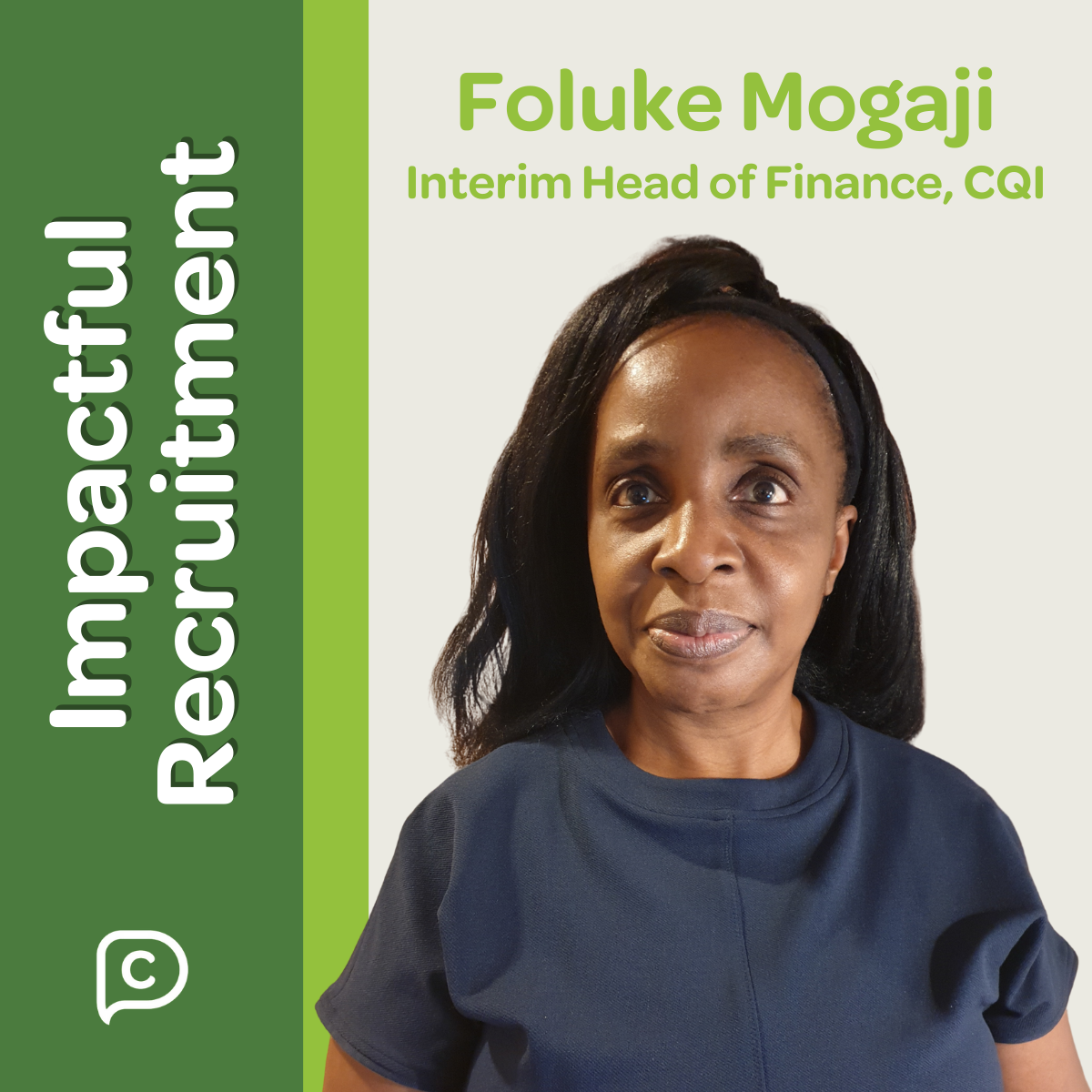We caught up with Foluke Mogaji after placing her at the Chartered Quality Institute (CQI) to find out more more about her career to date and her hopes for the future. Thank you for sharing your story with us, Folu!
Tell us a bit more about you and your career growth?
I was born the first of three children in the United Kingdom and by the age of ten, had relocated to Nigeria with my parents and two siblings to complete my secondary education. Like most of my peers back in those days, I aspired to become either a doctor or a lawyer – it was like no other career path was worth the time and effort. I found myself falling in line and following the medical route. After some deep thinking, I decide to move away from medicine for a rewarding career in
Accounting and Finance.
I kicked off my work experience in public practice, as a junior auditor rising to the post of Audit supervisor. My role involved preparing financial statements for small companies and performing audit duties and investigations for bigger companies or banks. It was an exciting time where I learned professional work ethics and developed the soft skills that have remained with me till this day. I qualified with the Institute of Chartered Accountants of Nigeria in November 1997 and subsequently with the Association of Chartered Certified Accountants (ACCA) in June 2003 following relocation to the United
Kingdom.
I worked a few years in commercial/private and housing before landing my first Not-For-Profit job as a Finance & Administration Officer at Healthlink Worldwide. In 2001, I was afforded the opportunity to act up in the role of Interim Head of Finance and Administration at Healthlink Worldwide and confirmed in post a few months later. Since then, I have held
similar positions in other UK Charities/Not for Profits, the most recent being International Medical Corps UK and Internews Europe respectively.
I have really enjoyed my time in the sector managing various finance and support functions including people and culture, all aspects of governance, risk analysis and management, general administration, including new and emerging jurisdictional concepts (safeguarding and data protection to mention a few). An advocate for Continuous Improvement, I have a special
place in my heart for organisational development and best practices, a key trigger to my qualifying as a Business Psychologist in 2013.
What has been your biggest career highlight so far?
Overall, it has been the opportunity to serve in a dynamic sector with such personal and professional satisfaction. I have also valued becoming a Trustee of other International Not for Profits.
I am most proud of managing my career alongside my family. Supporting my children through most of life’s challenging years. I am very thankful to God for that and the ability He has given me to pursue my dreams at the same time.
What has really surprised you about the not-for-profit and charity sector?
I would say, the sector’s growth to meet the increased challenges and risks brought about by various elements; conflict, instability, terrorism.
The sector has gained increased relevance in the world that we find ourselves today and remains committed to a better and safer world.
Regarding innovation, we are seeing new areas of work that are gaining new grounds and proving so useful for overall global humanitarian change. We all know, however, that with growth and innovation come new challenges and threats, but the
sector has responded very well backed up by key Government policies and commitments.
What excites you most about the future for your next role?
The world is changing and advancing. There is still so much more to do to maximise the impact of the sector. In recent years, the NFP focus has required a shift from the provision of basic amenities to lasting impact and change. There is still much to do
here.
We want to get to a place where beneficiaries of aid begin establishing their own brands, stand alone and become equipped to manage the current (and any new emerging) crises.
I am excited about the role of Finance and Operations in the future of the sector through continuous improvement
supported by robust management processes and digitisation.
What changes would you like to see in the charity and NFP sector as a whole?
More acknowledgement of the challenges of the sector in the wake of increased world conflict and disaster by Governments and Institutional funders. The challenges should be recognised in funding policies and agreements. This would enable charities and not-for-profits to spend more time and effort on the tasks at hand. While I understand the need for increased Accountability of
tax-payer funds, resources are needed more urgently to achieve impact! We all require our children to grown and become responsible adults. The sector is going to have to get better at defining what impact means in each context and hold all the parties involved accountable.


